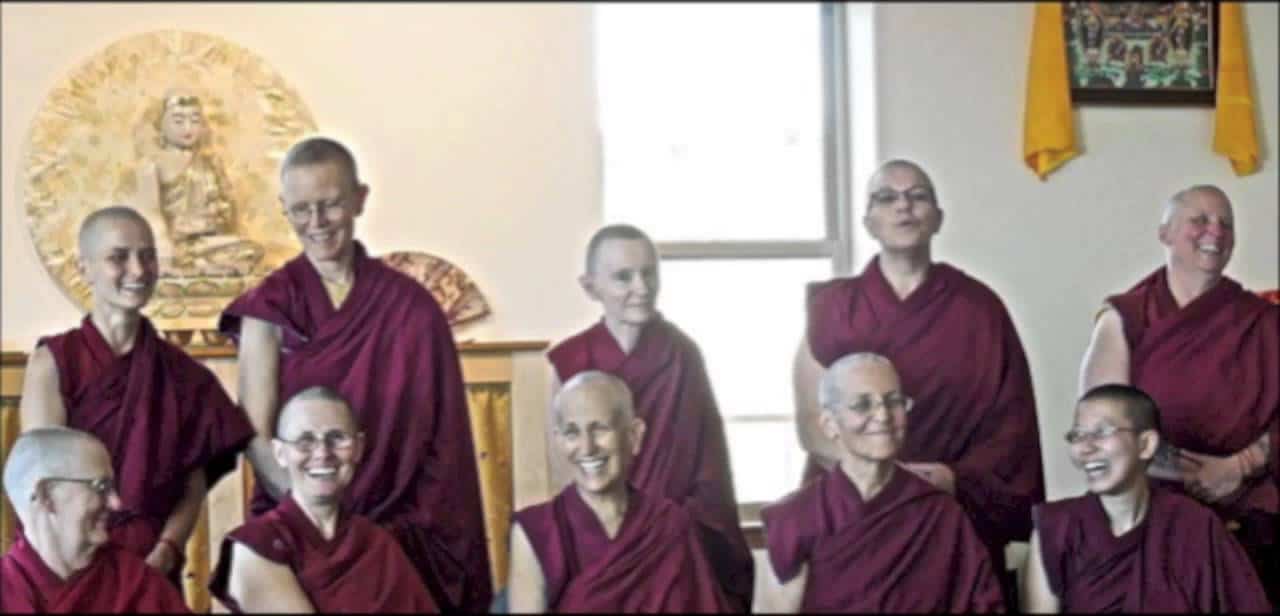Chapter 10: Quiz review part 3
Venerable Thubten Tarpa lead this review of Chapter 10 of Aryadeva's 400 Stanzas on the Middle Way. The quiz questions can be found here. This discussion covers questions 10-13.
- Refuting wrong conceptions such as a single cosmic mind, omnipresent self, or the mind as an emergent property of the brain
- Investigating ways the self seems to exist
- Establishing the conventional self as being merely labeled in dependence on the body and mind
- Differentiating between the inherently existent self that does not exist and the merely labeled self that exists in samsara and can attain liberation
- Refuting the annihilation of the self at the time of liberation
- Exploring continuity as a basis for things existing without existing inherently
84 Aryadeva’s 400 Stanzas: Quiz part 3 (download)
Venerable Thubten Tarpa
Venerable Thubten Tarpa is an American practicing in the Tibetan tradition since 2000 when she took formal refuge. She has lived at Sravasti Abbey under the guidance of Venerable Thubten Chodron since May of 2005. She was the first person to ordain at Sravasti Abbey, taking her sramanerika and sikasamana ordinations with Venerable Chodron as her preceptor in 2006. See pictures of her ordination. Her other main teachers are H.H. Jigdal Dagchen Sakya and H.E. Dagmo Kusho. She has had the good fortune to receive teachings from some of Venerable Chodron's teachers as well. Before moving to Sravasti Abbey, Venerable Tarpa (then Jan Howell) worked as a Physical Therapist/Athletic Trainer for 30 years in colleges, hospital clinics, and private practice settings. In this career she had the opportunity to help patients and teach students and colleagues, which was very rewarding. She has B.S. degrees from Michigan State and University of Washington and an M.S. degree from the University of Oregon. She coordinates the Abbey's building projects. On December 20, 2008 Ven. Tarpa traveled to Hsi Lai Temple in Hacienda Heights California receiving bhikhshuni ordination. The temple is affiliated with Taiwan's Fo Guang Shan Buddhist order.


